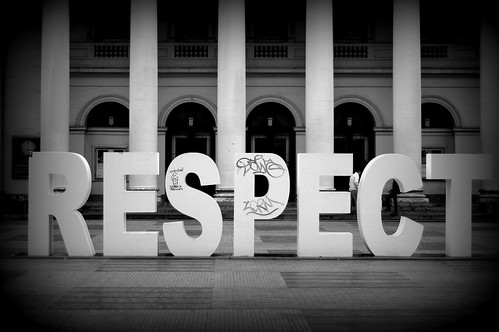I had someone message to me, “Trust is built” today, a 30 year old, and I laughed. Ask me about successful romance, how to build a dam, or how to make a decent curry and I’ll tell you that I’ve no worthwhile knowledge, but trust? I know a thing or two about trust.
We live in a society of social contracts, something I’ve been getting to writing about, and these social agreements are by necessity agreements. Trust, on the other hand, is one sided. If I were to trust you, gentle reader, there would likely be reasons for me to trust you. Maybe you remind me of someone I trusted, maybe you simply have demonstrated that I can trust you with privileged information. My trust in you requires you to meet certain criteria – for myself, pretty high.
There are shortcuts, though. Maybe I recognize in you attributes similar to others I could trust in the past and thus trust you because of that. It happens more often than we might like to admit.
For whatever reason, the trust I have in someone is completely one-sided. It’s faith in how someone will behave, a predictability that gives me some comfort. I might trust you with some deep, dark secret but maybe I don’t trust you to operate a light bulb. Or maybe I trust you to be a great dancer but maybe I don’t trust you with a kitchen. Trust is multifaceted. Intimate trust, the deepest level of trust, is either a fortunate accident or a mistaken trust, sometimes both as we change over time, growing in different directions.
And yes, trust can be built, but it can also be inherited. Those of us who respect authority might respect every single person in a uniform, like the military, and thus we might trust them more simply for wearing the uniform. Some of us who don’t would trust them less. Ladies and gentlemen, I present you the police force of the United States where some people don’t trust them and some do, and there is a difference of experience based on skin tone and income level which are disproportionately exclusive.
Trust is something that only burdens the recipient if the recipient chooses to be burdened by the trust, and then maybe we get into the social contract of trust, but trust all by itself is just a one way thing.
Whether we trust each other is something else entirely. In some instances, drinking a few beers with someone builds trust based on how they behave with a few beers. It could be the complicated ritual of dating where controlled circumstances are controlled less and less (or should be, maybe, I don’t know). It could be showing up to the same Church on a regular basis.
‘You can’t be all that bad, you go to Church regularly, so do I, so we both believe in similar things and therefore we are similar!’
Be seen at the ‘wrong’ Church, though, and things can go sideways.
So while trust is built, it can be built on arbitrary things, and what that trust is built on is generally a good indicator of the person doing the trusting – more so than the trustee. When we idolize the idea of someone, there’s an implicit trust. If someone in the public eye does something that doesn’t fit that idea of them, trust decreases in the idol (or should), and sometimes it may even feel like betrayal even though the idea of that person was not who they were. Disappointment, etc., are things we might try to avoid, and we might want to make someone proud. But that’s a two way thing, a contract of sorts, and in some cases not even negotiated.
Yeah, I know a thing or two about trust. But what the 30 something person failed to realize is that my trust in them wasn’t the issue, it was the trust in myself on having a solid basis for trust with them. I’d taken shortcuts and noticed enough to see my mistake in assuming things because of past experiences.



